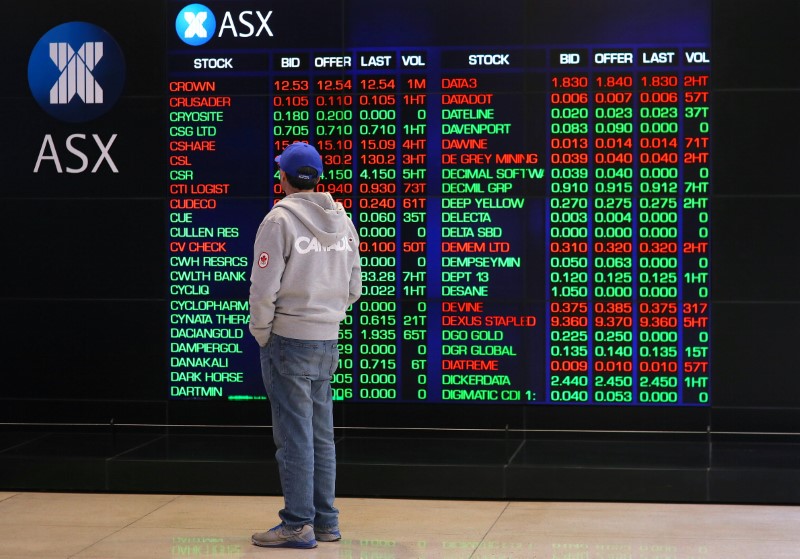* Australia excluded from coal import plan, says China state media
* Miners set for worst day in over two months
* Regulator to scrap dividend caps for banks next year
* NZ consumer confidence rebounds in Q4
By Arpit Nayak
Dec 15 (Reuters) - Australian shares fell on Tuesday as heavyweight miners were pressured by fears of higher regulatory scrutiny over surging iron ore prices in the steelmaking ingredient's top consumer, China.
The S&P/ASX 200 index .AXJO fell 0.4% to 6,630.1 by 0016 GMT, with top miners BHP Group BHP.AX and Rio Tinto (LON:RIO) RIO.AX giving up 2.5% and 1.1%, respectively.
Iron ore futures fell more than 4% on Monday after China's steel producers pushed for a regulatory probe into skyrocketing prices. IRONORE/
Strong speculative interest in the steelmaking ingredient had pushed the benchmark spot price in China last week to the highest since February 2013 at $159.50 a tonne.
The broader metals and mining sub-index .AXMM lost as much as 2.5% and was set for its worst session since Oct. 10, with Fortescue Metals Group FMG.AX easing 4%.
Beijing's top economic planner has also excluded Australia from a plan to allow coal imports from several countries without clearance restrictions, state-backed newspaper Global Times said. news sparked concerns over demand for Australian coal, sending shares of its producers sharply lower. Whitehaven Coal WHC.AX lost 10.2%, while New Hope Corp NHC.AX tumbled 13%.
Energy companies .AXEJ also declined as an oil price rally lost steam on concerns of oversupply. Woodside Petroleum WPL.AX dropped 1.9%, while Santos STO.AX gave up 2.6%. O/R
Gold stocks .AXGD fell over 1% as the rollout of a COVID-19 vaccine in the United States sparked optimism in wider financial markets for an economic recovery. GOL/
Financials .AXFJ ticked down 0.2% even after the country's banking regulator said banks would no longer have to hold a portion of their profit back starting next year, raising prospects for higher dividends. Zealand's benchmark S&P/NZX 50 index .NZ50 edged 0.1% lower to 12,824.37, with financials and utilities dominating losses.
The island nation saw consumer confidence rebound in the fourth quarter after a sharp fall in the preceding quarter.
